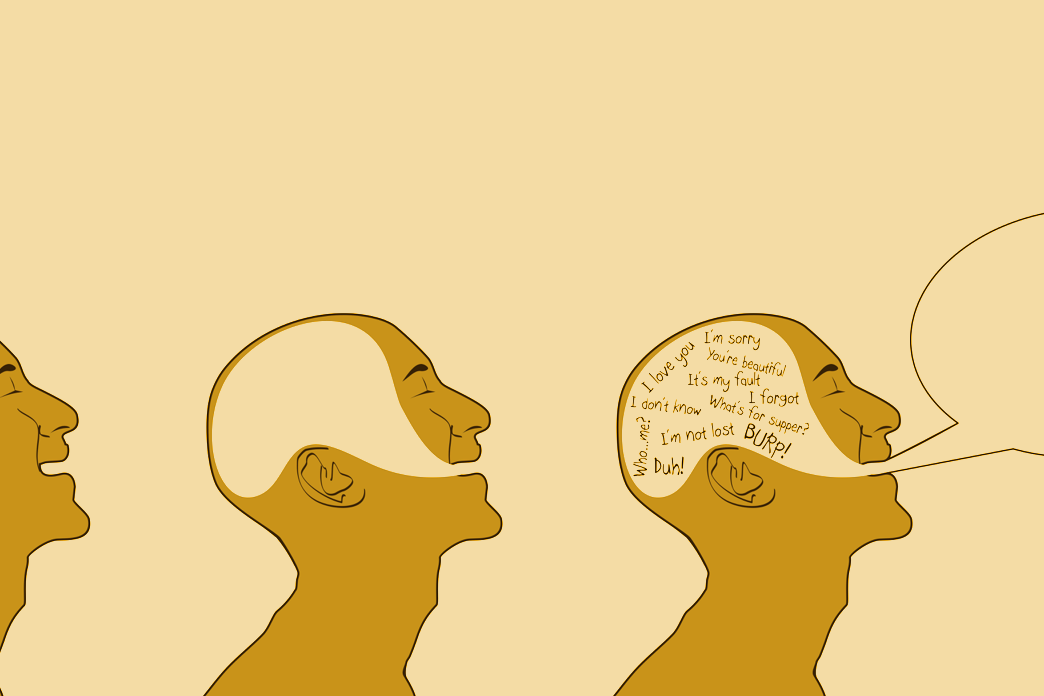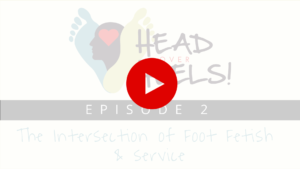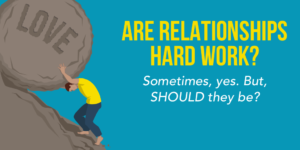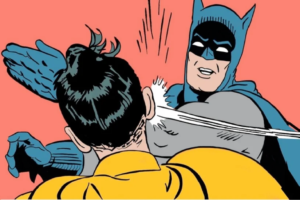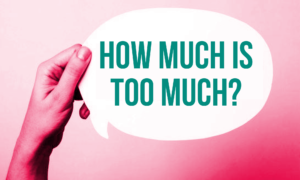This writing is now available as a podcast episode!
I’m about to start Writing Week, February 2020. What’s that, you ask? It’s my week every month where I retreat from parts of the world and write a book.
Yes, you heard that right.
A book. A whole book. This week.
And this week, I’m writing “Understand Me—Now! (And That’s An Order.) Communication for relationships, including ethical non-monogamy, kink, and BDSM.
So, when I popped into my writing prompt for the day, and it was about communication, I justified my writing (and recording today) as adding to my overall word count, even before I begin.
So, here goes.
About six months ago, I wrote, Communication Is NOT The Most Important Part Of A Relationship—Kinky Or Otherwise, and I said that appreciation is.
Of course, there were people who agreed with me and people who didn’t. Some who agreed that communication was not the most important thing, but didn’t think that thing was appreciation.
And I love that. I love that people don’t agree, and that they take the time to explain their reasoning. I learn from this.
As you can see today, I’m going to present a different viewpoint.
In my previous writing, I said that without appreciation, there would be no point for a relationship to be at all. No point in communicating.
In this piece, I’ll talk about the relationship you already have—be it love or friendship, co-worker or service provider and client, and how communication affects every aspect of it in two ways, natural communication and conscientious communication.
Natural Communication
Throughout our lives, MOST of our communication is “natural” communication. The type of communicating we do when we’re not thinking about our communication. It’s a sort of ‘default’ setting to our communication—a base level to which we return easily at any time.
It is our nature.
Not nature in the sense that it never changes. It does—sometimes drastically—throughout our lives.
Nature in the sense that it represents who we are and how we communicate NOW.
I’d estimate this makes up 98-99 percent of our daily lives, unless we are in high-communication fields of study or careers, like sales, writing, psychology, etc. Even so, much of our study and work will become more natural as we go through life, even when it was once very much a conscious effort. Going from conscious incompetence to unconscious competence, to make room for new learning and ways to speak.
Conscientious Communication
Conscientious communication is what happens when we think about speaking. Not just what we want to say, but HOW we want to say it.
A couple of examples from my book Dating Kinky, about writing profiles:
Instead of: I like board games.
Try something like: I’m a rockstar at games, especially Monopoly, Werewolf and Exploding Kittens.
This puts more personality—more YOU—into the profile. Or, to look at something that might be considered a ‘negative’ by some:
Instead of: I hate running.
Try something like: I run like an asthmatic sloth. Don’t ask me to race with you, but hiking in nature is always fun, and I can go for hours!
OR:
I’m 38-28-43, definitely curvy. Some might call me fat, even. I rock this body, and love my physical strength and the way I look in tight skirts. My best partner will, too.
Of course, we also use this type of communication when we are trying to say something awkward or negative to a friend (hopefully!) or loved one.
Or when we’re writing a dicey email to the boss.
And it makes up a small percentage of most of our lives. Even those who communicate conscientiously as part of their work will still only add up to maybe 10 percent. Because again, even that kind of careful speech becomes ingrained habit, and we create toolboxes of shortcuts and this-worked-previously scenarios, so we can reduce mental workflow.
So, with these two types of communication, there are three things to remember:
- Choosing to conscientiously communicate changes the communication.
For good or ill, it changes what is being said and how, which will impact the communication and the results.
And, in some cases, what we are trying to say oh-so-carefully will conflict with our natural forms of communication.
- There are often times when one person is communicating naturally, and the other is choosing to communicate conscientiously. Or, they may be required to.
For example, a customer service representative my have to choose their words carefully while a “Karen” screams at them to get their manager, without necessarily thinking about what they are saying or the impact.
- If your natural communication styles are not compatible with another person, you will likely feel increasingly uncomfortable around them.
This discomfort may take many forms:
- Slight depression
- Feelings of awkwardness or unworthiness
- Irritability
- Disgust
- Dis-ease
- Fear
And so on. Which can be hard to pinpoint the reason for, and depending on whether you blame yourself or the other person (or simply recognize the issue as one that does not require blame, but just is), might make you work harder to earn their approval, make you act cruelly, or make you sad.
Many people whose natural communication fits well with your own are those who immediately make you feel at ease, and like you’ve known them forever. It’s not just WHAT they say—it’s how they say it, often down to the vocabulary, grammar and spelling markers, tone of voice, and if you are in-person, their body language.
If your conscientious communication is not a match, that will be less of an issue, well, at least if you have appreciation for your partner, and wish to bridge the gap. Over time, in romantic relationships, this can be built upon, and you may see it growing together, intertwining over time, and creating even closer natural communication styles, while making conscientious communication more effective as well.
Of course, it may not. You may never meet eye-to-eye that way. But you may not need to as much, if your natural communication styles work, you may rarely have the need for huge knock-down-drag-out (verbal) fights with each other, and your natural bonds may keep you together.
Without those natural communication similarities, though, you’ll probably pick at each other constantly, find small things to argue about, and rarely even know what you’re fighting about, just that you’re angry.
And that will destroy what you hope to build, one word at a time.


